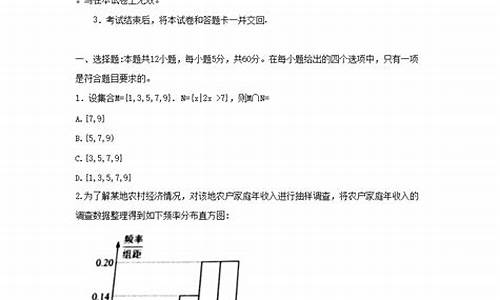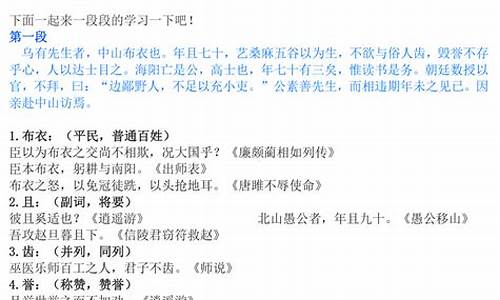高考常用句式_高考常用句子
1.高考英语必备句型20例
2.有什么高考英语作文的万能句式?
3.高考英语高分必背知识点
4.高考复习:怎样变换句式
5.高考英语万能句型100句有哪些?
6.高考语文议论文的30个经典句式介绍

万能句型:
开头句型:
1.As far as ...is concerned 就……而言
2.It goes without saying that... 不言而喻,...
3.It can be said with certainty that... 可以肯定地说......
4.As the proverb says, 正如谚语所说的
5.It has to be noticed that... 它必须注意到,...
6.It's generally recognized that... 它普遍认为...
7.It's likely that ... 这可能是因为...
8.It's hardly that... 这是很难的......
9.It's hardly too much to say that... 它几乎没有太多的说…
10.What calls for special attention is that...需要特别注意的是
11.There's no denying the fact that...毫无疑问,无可否认
12.Nothing is more important than the fact that... 没有什么比这更重要的是…
13.what's far more important is that... 更重要的是…
衔接句型
1.A case in point is ... 一个典型的例子是...
2.As is often the case...由于通常情况下...
3.As stated in the previous paragraph 如前段所述
4.But the problem is not so simple. Therefore 然而问题并非如此简单,所以……
5.But it's a pity that... 但遗憾的是…
6.For all that...对于这一切...... In spite of the fact that...尽管事实......
7.Further, we hold opinion that... 此外,我们坚持认为,...
8.However , the difficulty lies in...然而,困难在于…
9.Similarly, we should pay attention to... 同样,我们要注意...
10.not(that)...but(that)...不是,而是
11.In view of the present station.鉴于目前形势
12.As has been mentioned above...正如上面所提到的…
13.In this respect, we may as well (say) 从这个角度上我们可以说
14.However, we have to look at the other side of the coin, that is... 然而我们还得看到事物的另一方面,即 …
结尾句型
1.I will conclude by saying... 最后我要说…
2.Therefore, we have the reason to believe that...因此,我们有理由相信…
3.All things considered,总而言之 It may be safely said that...它可以有把握地说......
4.Therefore, in my opinion, it's more advisable...因此,在我看来,更可取的是…
5.From what has been discussed above, we may safely draw the conclusion that….通过以上讨论,我们可以得出结论…
6.The data/statistics/figures lead us to the conclusion that….通过数据我们得到的结论是,....
7.It can be concluded from the discussion that...从中我们可以得出这样的结论8.From my point of view, it would be better if...在我看来……也许更好
举例句型
1.Let's take...to illustrate this.
2.let's take the above chart as an example to illustrate this.
3. Here is one more example.
4.Take … for example.
5.The same is true of….
6.This offers a typical instance of….
7.We may quote a common example of….
8.Just think of….
常用于引言段的句型
1.Some people think that …. 有些人认为…To be frank, I can not agree with their opinion for the reasons below. 坦率地说,我不能同意他们的意见,理由如下。
2. For years, … has been seen as …, but things are quite different now.多年来,……一直被视为……,但今天的情况有很大的不同。
3. I believe the title statement is valid because…. 我认为这个论点是正确的,因为…
4. I cannot entirely agree with the idea that ….我无法完全同意这一观点的… I believe….
5. My argument for this view goes as follows.我对这个问题的看法如下。
6. Along with the development of…, more and more….随着……的发展,越来越多…
7. There is a long-running debate as to whether….有一个长期运行的辩论,是否…
8. It is commonly/generally/widely/ believed /held/accepted/recognized that….它通常是认为…
高级句型:
People’s views on … vary from person to person. Some hold that …. However, others believe that….人们对……的观点因人而异.有些人认为……,然而其他人却认为……
People may have different opinions on …人们对……可能会有不同的见解.
Attitudes towards (drugs) vary from person to person.人们对待的态度因人而异.
There are different opinions among people as to …关于……,人们的观点大不相同.
Different people hold different attitudes toward (failure). 对(失败)人们的态度各不相同。
Taking all these factors into consideration, we naturally come to the conclusion that…
把所有这些因素加以考虑,我们自然会得出结论……
Taking into account all these factors, we may reasonably come to the conclusion that …
考虑所有这些因素,我们可能会得出合理的结论……
Hence/Therefore, we’d better come to the conclusion that …
因此,我们最好得出这样的结论……
There is no doubt that (job-hopping) has its drawbacks as well as merits.
毫无疑问,跳槽有优点也有缺点.
All in all, we cannot live without … But at the same time we must try to find out new ways to cope with the problems that would arise.
总之,我们没有…是无法生活的.但同时,我们必须寻求新的解决办法来对付可能出现的新问题.
It is high time that we put an end to the (trend).该是我们停止这一趋势的时候了.
It is time to take the advice of … and to put special emphasis on the improvement of …
该是采纳……的建议,并对……的进展给予特殊重视的时候了。
There is no doubt that enough concern must be paid to the problem of …
毫无疑问,对……问题应予以足够的重视.
Obviously, … If we want to do something … , it is essential that …
显然,如果我们想做某事,很重要的是…
Only in this way can we … 只有这样,我们才能……
It must be realized that …我们必须意识到……
Obviously, if we don’t control the problem, the chances are that … will lead us in danger.
很明显,如果我们不能控制这一问题,很有可能我们会陷入危险.
No doubt, unless we take effective measures, it is very likely that …
毫无疑问,除非我们采取有效措施,很可能会……
It is urgent that immediate measures should be taken to stop the situation.
很紧迫的是,应立即采取措施阻止这一事态的发展.
According to a recent survey, four million people die each year from diseases linked to smoking.
依照最近的一项调查,每年有4,000,000人死于与吸烟有关的疾病。
The latest surveys show that quite a few children have unpleasant associations with homework.
最近的调查显示相当多的孩子对家庭作业没什么好感。
No invention has received more praise and abuse than Internet.
没有一项发明像互联网一样同时受到如此多的赞扬和批评。
People seem to fail to take into account the fact that education does not end with graduation.
人们似乎忽视了教育不应该随着毕业而结束这一事实。
An increasing number of people are beginning to realize that education is not complete with graduation.
越来越多的人开始意识到教育不能随着毕业而结束。
When it comes to education, the majority of people believe that education is a lifetime study.
说到教育,大部分人认为其是一个终生的学习。
Many experts point out that physical exercise contributes directly to a persons physical fitness.
许多专家指出体育锻炼直接有助于身体健康。
Proper measures must be taken to limit the number of foreign tourists and the great efforts should be made to protect local environment and history from the harmful effects of international tourism.
应该采取适当的措施限制外国旅游者的数量,努力保护当地环境和历史不受国际旅游业的不利影响。
An increasing number of experts believe that migrants will exert positive effects on construction of city. However, this opinion is now being questioned by more and more city residents, who complain that the migrants have brought many serious problems like crime and prostitution.
越来越多的专家相信移民对城市的建设起到积极作用。然而,越来越多的城市居民却怀疑这种说法,他们抱怨民工给城市带来了许多严重的问题,像犯罪和....
高级词汇:
severe 替换掉serious (严重的)
a severe water shortage严重缺水
needy 替换掉 ppor ( 贫穷的)
wealthy 替换掉 rich ( 富裕的)
benificial 替换掉 good (有益的)
undesirable 替换掉 bad (不好的,不受欢迎的)
nevertheless 替换掉 however (然而,不过)
fundamental / significant 替换掉 important ( 重要的)
relevant 替换掉 related (有关的)
....is highly relevant to.......
extraodinary 替换掉 surprising (惊人的,非凡的)
provided/providing (that )替换掉 if (如果..... )
promote /strengthen 替换掉 improve (提高,加强)
cope with 替换掉 solve ( 解决)
motivate 替换掉 encourage ( 激励)
jeopardize 替换掉 be bad to (损害,
well-being 替换掉 happiness (幸福,安康)
pros and cons 替换掉 advantages and disadvantages(好处和坏处)
approach / method 替换掉 way (方法,方案)
adopt 替换掉 use (采用,采取)
the aged 替换掉 old people(老人)
adolescents 替换掉 the young (青少年)
一些高级词汇的整理
高考英语必备句型20例
高考英语作文简单句式如下:
中国传统文化
This time I will introduce Tang Poetry to you, which is of great help in learning Chinese.这次我要向你介绍唐诗,它对学习汉语有很大帮助。
核心短语introduce sb / sth to sb向某人介绍某人/某事物(be) of help有帮助的
2.In class, you will mainly learn Tang Poetry, which reflects traditional Chinese culture and is deeply loved by Chinese.课堂上,你将主要学习唐诗,唐诗折射了中国的传统文化,并且深受中国人的喜爱。
核心短语is deeply loved by深受……喜爱
感谢、建议、邀请、通知
1.Thank you in advance.先行致谢。
核心短语in advance (of... )提前(于……);预先(于……)
2.Thank you for your concern.谢谢你的关心。
3.Any student who is interested is welcome to participate.欢迎任何感兴趣的同学前来参加。
4.I sincerely hope you could join us.我真诚地希望你能加入我们。
5.I would appreciate it if you could take my proposal into consideration.如果您能考虑我的建议,我将不胜感激。
核心短语I’d appreciate it if…如果……我将不胜感激take sth into consideration考虑到某事;顾及某事
有什么高考英语作文的万能句式?
句型1
would rather that somebody did…"宁愿……;更愿意……"(表示现在或将来的愿望)
would rather that somebody had done…"宁愿……;更愿意……"(表示过去的愿望)
[例句
I'd rather you posted the letter right now. 我想让你现在去寄信。
I'd rather you were not a celebrated actor. In that case, we could spend more time together.
我到情愿你不是个知名演员,这样我们可以有更多的时间在一起。
I'd rather that I hadn't seen her yesterday. 我情愿昨天没有看到她。
句型2
as if/though+主语+did/had done…好像……(表示现在或将来的情况用过去时;表示过去的情况用过去完成时)[参考句型4]
[例句
Our head teacher treats us as if we were her own children, so all the students in our class think highly of her.
Alan talked about Rome as if he had been there. Alan谈起罗马来就好像他去过那里似的。
句型3
"wish +宾语从句",表示不大可能实现的愿望
表示现在的愿望:主语+过去时;
表示过去的愿望:主语+had done;
表示将来的愿望:主语+would/could do
[例句
How I wish we students had more free time to relax ourselves! 我们学生多么希望有更多的自由时间放松自己!
I failed in the maths exam. How I wish I hadn't wasted so much time playing!
What a pity you can't go to the party. How I wish I could dance with you at the party!
句型4
It's high/about time that somebody did (should do) (should通常不省略) …早就该……
[例句
It's time that you went to school.= It's time that you should go to school.
It's high time that we did something to improve our environment. 该是我们为环保做些事情了。
I think it's high time that she made up her mind. 我想她该拿定主意了。
句型5
情态动词+动词不定式完成结构的用法
could have done "本来可以……"(表示过去没有实现的可能)。
might have done "本来可能……;本来应该或可以做某事"(实际没有发生;含有轻微的责备语气。
should/ought to have done "本来该做某事"(而实际未做)
should not/ought not to have done "本来不该做"(实际却做过了,含有责备语气)
needn't have done "本来不必做"(但是已经做过了)
would rather have done "当时宁愿做了某事"(实际没有做过);否定式would rather not have done表达相反意思,两者都有表示"后悔"之意。
句型6
as, though, although引导的让步状语从句。
[注意]although位于句首;though位于句首或句中;as位于句中=though。它的词序是把句中强调的形容词、副词、动词或名词放在连词前。[参考倒装结构] 请注意下列句式的变化:
[例句
1. Although/Though I'm young, I already know what career I want to follow.
→Young as/though I am, I already know what career I want to follow.
我虽然年轻,但我已经明白我应该追随什么样的事业。
2. Although/Though I respect him very much, I cannot agree with his idea.
→Much as/though I respect him, I cannot agree with his idea. 虽然我很尊重他,但是我不同意他的观点。
3. Although/Though he is a child, he knows a lot of Chinese characters.
→Child(省略冠词)as/though he is, he knows a lot of Chinese characters. 他虽然还是个孩子,却认识了许多汉字。
4. Although he tried, he couldn't solve the problem.
→Try as he might, he couldn't solve the problem. 尽管他努力了,但是他没有解决问题。
5. Although it is raining, I'm going out for a walk.
→Raining as it is, I'm going out for a walk. 天虽然在下雨,我还是要出去散步。
6. Strange as it may seem, nobody was injured in the accident. 这次意外虽然显得不可思议,却没有人受伤。
7. Much as I would like to help, I have a lot to do. 虽然我很想帮助你,但是我有很多事要做。
8. Object as you may, I will go. 纵使你反对,我也要去。
句型7
…before…特殊用法(1)"没来得及……就……"
[例句
The roof fell before he had time to dash into the room to save his baby.
他还没有来得及冲进房间救孩子,房顶就塌了。
He ran off before I could stop him. 我还没有来得及阻止,他已经跑了。
To my great disappointment, my favorite singer left the concert before I could have a word with her.
让我非常失望的是,我还没有来得及和我最喜欢的歌手打招呼,她就已经离开了。
句型8
…before…特殊用法(2)"过了多久才……"或"动作进行到什么程度才……"
[例句
They walked about fifty miles to the west before they saw a village.
他们西行50英里才看到一个村庄。
The workers worked day and night about three days before everything returned to normal.
工人们连续工作3天才使一切恢复正常。
He almost knocked me down before he knew it.
他几乎撞到我了才意识到。
We had walked a long way before we found some water.
我们走了很长的路才找到一点水。
Five years went by before I knew it. 不知不觉,五年过去了。
句型9
It was + 时间段+before…."过了多久才(怎么样)……"
It was not long before…."不久,就……"
It will (not) be +时间段+before…."要过多久(不久)……才……"(before从句谓语动词要用一般时态)
[例句
It was not long before he sensed the danger of the position.不久他就意识到他处境的危险。
It was five days before he came back. 五天后他才回来。
It will be half a year before you graduate from the school. 再过半年你才能毕业。
It will not be long before they understand each other. 他们大概不久就会互相了解。
句型10
in case of…(+n.) "以防;万一";
in case that…"以防,万一……"(谓语动词用一般现在时态或should+动词原形)
[例句
In case of fire, what should we do?
Please remind me about it in case I forget/should forget. 万一我忘了,请提醒我。
In case (that) John comes/should come, please tell him to wait.
Please take your umbrella in case (that it rains/should rain).带上雨伞,以防下雨。
句型11
It强调句型
强调句的基本构成:It is/was + 被强调的部分 + who(主要指人时)/that + 其余部分
[注意
这种结构可以强调句子的主语、宾语、状语(包括时间,地点,方式,原因等),但是不能强调谓语动词(参考句型15)。
原句的谓语动词如果是现在或将来时态,用It is…that/who….;
原句的谓语动词如果是过去时态,用It was…that/who….;
强调时间、地点、原因或方式时不要用when, where或how, 必须用that。
[例句
I saw him in the street yesterday afternoon.
→It was I who saw him in the street yesterday afternoon.(强调主语)
→It was in the street that I saw him yesterday afternoon.(强调地点状语)
→It was yesterday afternoon that I saw him in the street.(强调时间状语)
→It was him that/who I saw in the street yesterday afternoon.(强调宾语)
[例句
He didn't go to bed until his mother came back.
→It was not until his mother came back that he went to bed.
He didn't do his homework until his father came back from work.
→It wasn't until his father came back from work that he did his homework.
[例句
Only when you nearly lose someone do you fully realize how much you value him.
→It is only when you nearly lose someone that you fully realize how much you value him.
只有你快要失去某个人时,你才意识到你是多么尊重他。
[例句
I was late again because the traffic was very heavy during the rush hour.
→It was because the traffic was very heavy during the rush hour that I was late again.
(强调句中只能强调由because引导的原因状语从句,because不能换成since, as, for, now that等)
[注意强调句的疑问结构
一般疑问句 Is / Was it +被强调部分 +who / that …?
特殊疑问句 特殊疑问词+is /was +it +who / that…?
What is/was it that…? Who is/was it that…? When is/was it that…?
Where is/was it that…? Why is/was it that…? How is/was it that…?
[例句
I saw him in the street yesterday afternoon.
→When was it that you saw him in the street?
→Who was it that you saw in the street yesterday afternoon?
→Where was it that you saw him yesterday afternoon?
[例句
I don't know when he will come back.
→I don't know when it is that he will come back.(宾语从句疑问词后用陈述句语序)
–How was it that you got in touch with Mr. Smith? 你是怎么和Smith先生联系上的?
–Trough a friend of mine. 通过一个朋友。
句型12
(1)、祈使句(表条件)+ or/or else/ otherwise + 主句(表结果)… "否则…,要不然…"
(2)、祈使句(表条件)+ and +主句(表结果)
[例句
Hurry up, or you'll be late for class.
Please call me up before you come, otherwise/or else/or we might be out.
你来之前打个电话,否则,我们也许会出去。
Think it over and you will find the answer.
Give him an inch and he will take a mile. 得寸进尺。
Work hard and you will make progress every day. 好好学习,天天向上。
句型13
…until…."直到……时候";not…until…"直到……才……"
[例句
You are to stay until/till your mother comes back. 你得等到你妈妈回来。
The meeting was put off until ten o'clock. 会议推迟到十点钟。
The villagers didn't realize how serious the pollution was until all the fish died in the river.
→Not until all the fish died in the river did the villagers realize how serious the pollution was.(倒装句)
等到湖里的鱼全死光了,村民们才意识到污染是多么严重。
He didn't go to bed until his mother came back.
→It was not until his mother came back that he went to bed.(强调句)
Not until he failed in the exam did he realize that he had wasted much time playing computer games.
Not until his son came back from school did he go to bed.
句型14
unless…"除非,如果不……"(=if…not)
[例句
I shall go tomorrow unless it rains. 如果不下雨,我明天去。
–Shall Tom go and play football?
–Not unless he has finished his homework. 除非他完成作业,否则不能出去。
I won't go unless he comes to invite me himself.
除非他本人来邀请我,不然我是不会去的。
I won't attend his birthday party unless invited (=unless I am invited). 除非被邀请,否则我不
去参加的生日晚会。
句型15
when引导的从句
when除了用来引导主语从句、宾语从句、时间状语从句、表语从句和定语从句,还有一种用法值得关注,那就是when引导并列分句,意思是"这时突然;就在那时",强调另一个动作的突然发生。常用于以下句型中:(1)、主语 + be doing… when…意思是"正在做某事这时……";(2)、主语 + be about to do…when…;(3)、主语+be on the point of (doing) …when…意思是"正要去做某事这时……"
[例句
One day Chuck was on a flight across the Pacific Ocean when suddenly his plane crashed. 有一天,Chuck正在太平洋上飞行,这时他的飞机突然爆炸了。
I don't know when he will arrive. 我不晓得他什么时候到达。
I thought of the happy days when I was in Beijing. 我想起了在北京时的那段快乐日子。
I believe the time will soon come when there will be no weapons in the world. 我相信世界上没有武器的日子不久就会到来。
I was walking along the river when I heard a drowning boy cry for help. 我正在河边行走,这时我突然听到一个落水男孩求救。
I was about to leave when it began to rain. 我刚要离开,这时下雨了。
I had just finished my exam paper when the bell rang, announcing the class was over. 我刚做完作业,下课铃响了。
I thought of the happy days when I was in France. 我想到了在法国时那段快乐日子。
I believe the time will soon come when there will be no weapons in the world. 我相信世界上没有武器的日子不久就会来临。
[比较
I was walking along the street when I caught sight of a tailor's shop. 我正在街上走,这时我看见一家裁缝店。
I was walking along the streets. Just at the moment I caught sight of a tailor's shop. 我在街上走。就在那时我看见一家裁缝店。
句型16
while引导的从句
while除了有"当/在……时候"的意思外(注意:引导的句子谓语动词只能是延续性动词!),另外的两层意思也是考查的重点:(1)while = although "尽管"、"虽然",引导让步状语从句;(2)while的意思是"然而;可是",常用来表达对比关系。
[例句
While I admit that the problem is difficult, I don't think that they can't be solved.
尽管我承认这个问题很难,但是我并不认为无法解决。
While I admit his good points, I can see his shortcomings.
虽然我承认他的优点,我也能看出他的缺点。
While I was angry with her, I didn't lose my temper.
虽然我很生气,但我当时没有对她发脾气。
While I understand your viewpoint, I don't agree with you. 虽然我了解你的见解, 我还是不能同意(你)。
I earn only 120 dollars a week, while she earns 180 dollars. 我一星期只赚120美元,她却赚180美元。
句型17
where…(地点从句)
[注意]where引导地点从句时,可以引导定语从句或是逻辑地点状语从句。当它在定语从句中作地点状语,指代地点时,这时可以用in which, on which, at which, to which, from which等结构代替。但是它引导逻辑地点状语从句时,没有这样用法。
[例句
You should put the book where it was. 把书放回原处。
Persistent people begin their success where others end in failure.
不屈不挠者从他人失败的地方获取成功。
Where there is a will, there is a way. 有志者,事竟成。
Where men are greedy, there is never peace. 人类贪欲不止,世界和平无望。
Go where you should, keep on studying. 无论你到哪里,你都应该继续学习。
That is the building where my father works. 那是我父亲工作的大楼。
Yesterday I went to the department store, where I met my teacher. 昨天我去百货公司,就在那儿遇见了我的老师。
That's where a change is needed. 那就是需要变更的地方。
We could see the runners very well from where we stood. 从我们所站的地方能很清楚地看到赛跑的选手。
You should let your children play where you can see them. 你应该让小孩在你的视线所及的地方玩耍。
Potatoes can be grown in places where it is too cold to grow rice.=Potatoes can be grown in places where it is too cold to grow rice.(本句where引导定语从句)
有些地方太冷不能种水稻,但可以种马铃薯。
[请比较下面的句子结构的不同
Potatoes can be grown where it is too cold to grow rice.(本句where引导地点状语从句)
句型18
what引导的从句
what在英语中非常活跃,它可以用来引导主语从句、宾语从句、表语从句,但是不用来引导定语从句。在句子里可以充当主语、宾语、表语、定语,既可以指人,也可以指物。
[例句
What is the population of the world? 世界的人口有多少?
What did you pay for this picture? 这幅画你付了多少钱?
What is most important in life isn't money. 人生最重要的并非是金钱。
Will you show me what you bought? 可以把你所买的东西给我看一下吗?
Mary is no longer what she was ten years ago. Mary已经不是10年前的她了。
句型19
as引导的非限制性定语从句
在as引导的非限制性定语从句中,连接代词as在句子中可以作主语、宾语或表语等,可以指人或物。其在定语从句中的位置比较灵活,即可以在句子前面,在句子中间或句子末尾。常用的结构有:as we all know; as is well known to…; as is often the case; as is said/mentioned above; as has been said before; as I told you before; as is evident; as often happens; as can be seen; as is/was expected; as we expect; as I can remember等。
[注意1]as通常只指整个句子的内容,不表示部分内容。
[注意2]as引导的非限制性定语从句通常指"事先可以预料到的""料想到的",表达"好"的方面。
[注意3]as引导限制性定语从句时,常构成the same…as…; such…as…; so/as …as…等结构。在从句中既可以指人、物,也可以指整个句子。
[例句]
This is also part of your work, as I told you before. 我曾告诉过你,这也是你工作的一部分。
The man was a teacher, as was evident from his way of speaking. 从那人说话的样子可明显看出,他是个老师。
Such ideas as he hits on are worthless. 像他那样偶然想起的主意是无用的。
It's the same story as I heard from her yesterday. 这故事跟我从她那儿听到的相同。
He will marry as pretty a girl as he can find. 他要尽可能找漂亮的女孩结婚。
Such people as have made great contributions to the world should be greatly respected.
那些对世界做出巨大贡献的人们应该受到极大的尊重。
句型20
which引导的非限制性定语从句(也引导限制性定语从句)
which引导的非限制性定语从句既可以指整个句子内容,也可以指句子的部分内容(如单词或词组等),在句子中可以作主语、宾语(动词或介词的)、定语等。注意它在句子中的位置:只能放在主句后,不能放在主句前。表达的内容是"不好的"、"事先没有预料到的"等时,常用which,只指物。
[例句
Yellowstone National Park, which is in Wyoming, is one of the most beautiful national parks in the world. 黄石国家公园位于怀俄明州,是世界上最美丽的国家公园之一。
The clock, which my grandfather bought, is still in good order. 这时钟是我祖父买的,现在还走时很准。
The picture, for which he paid an enormous amount of money, was a forgery.
那幅画他花了一大笔钱购买,却是幅赝品。
She changed her mind again, which made us all angry. 她又改变了主意,这使我们大家都生气了。
I lived three years in Paris, during which time I learned French. 我在巴黎住了三年,在那期间我学了法语。
The weather turned out to be very good, which was more than we could expect. 天气结果转晴,
这是我们没有预料到的。
高考英语高分必背知识点
在高考英语作文中,有一些万能句式可以帮助你更好地表达自己的观点和想法。以下是一些常用的万能句式:
1.开头句型:
-AsfarasIamconcerned,Iagreewiththelatteropiniontosomeextent.
-Asapopularsayinggoes,"Wherethereisawill,thereisaway."
-Itistruethat...,butonevitalpointisbeingleftout.
-Thereisalong-runningdebateastowhether...
-Somepeoplearguethat...Others,however,believethat...
2.结尾句型:
-Inconclusion,itismoreadvisableto...
-Fromwhathasbeendiscussedabove,wemaysafelydrawtheconclusionthat...
-Takingallthesefactorsintoaccount,wenaturallycometotheconclusionthat...
-Therefore,itisnotdifficulttodrawtheconclusionthat...
-Allthingsconsidered,...
3.举例说明:
-Take...forexample.
-Agoodcaseinpointis...
-Asanillustration,wemaytake...
-Thiscanbedemonstratedbytheexampleof...
4.常用于引言段的句型:
-Somepeoplethinkthat...
-Tobesure,...
-Itgoeswithoutsayingthat...
-Manypeoplewouldagreethat...
5.常用于中间段落的句型:
-Onthecontrary,therearemanyreasonswhy...
-Althoughitmightseemlikeagoodidea,itdoesmoreharmthangood.
-Foronething...Foranother...
-However,justlikeeverythinghastwosides,...
高考复习:怎样变换句式
高考英语是很多同学的弱势科目,下面我跟大家分享一下高考英语必考的重点句型,希望对你有帮助。
高考英语必考句型
1.as if/though+主语+did/had done…好像……(表示现在或将来的情况用过去时;表示过去的情况用过去完成时)[参考句型4]
2.情态动词+动词不定式完成结构的用法
could have done "本来可以……"(表示过去没有实现的可能)。
might have done"本来可能……;本来应该或可以做某事"(实际没有发生;含有轻微的责备语气。
should/ought to have done "本来该做某事"(而实际未做)
should not/ought not to have done "本来不该做"(实际却做过了,含有责备语气)
needn't have done "本来不必做"(但是已经做过了)
would rather have done "当时宁愿做了某事"(实际没有做过);否定式would rather not have done表达相反意思,两者都有表示"后悔"之意。
我推荐: 2017年高考英语蒙题技巧总结
高考英语重点句型1."wish +宾语从句",表示不大 可能实现的愿望
表示现在的愿望:主语+过去时;
表示过去的愿望:主语+had done;
表示将来的愿望:主语+would/could do
2.It's high/about time that somebody did (should do) (should通常不省略) …早就该……
3.as, though, although引导的让步状语从句。
[注意]although位于句首;though位于句首或句中;as位于句中=though。它的词序是把句中强调的形容词、副词、动词或名词放在连词前。
必考的重点高考英语句型1.would rather that somebody did…"宁愿……;更愿意……"(表示现在或将来的愿望)
would rather that somebody had done…"宁愿……;更愿意……"(表示过去的愿望)
2.…before…特殊用法(1)"没来得及……就……"
…before…特殊用法(2)"过了多久才……"或"动作进行到什么程度才……"
3.It was + 时间段+before…."过了多久才(怎么样)……"
It was not long before…."不久,就……"
It will (not) be+时间段+before…."要过多久(不久)……才……"(before从句谓语动词要用一般时态)
高考英语口语必备短句1. I see. 我明白了。
2. I quit! 我不干了!
3. Let go! 放手!
4. Me too. 我也是。
5. My god! 天哪!
6. No way! 不行!
7. Come on. 来吧(赶快)
高考英语万能句型100句有哪些?
常见的句式有:长句与短句,主动句与被动句,肯定句与否定句,陈述句、疑问句、祈使句、感叹句,常式句与变式句,整句与散句,口语句式与书面语句式,单句与复句等。在高考中,要求考生能根据语言表达的需要,灵活运用上述句式。
1.长句与短句
所谓长句,是指词语多、结构复杂的句子。所谓短句,是指词语少、结构简单的句子(包括复句中的分句)。长句和短句各有其修辞效果。长句的修辞效果是表意严密、精确、细致,短句的修辞效果是表意简洁、明快、有力。长句主要用于书面语、议论、描写之中,短句主要用于口语、紧急场合、演讲词等中。
2.主动句与被动句
在动词谓语句中,主语是动作或行为的施事者,这样的句子叫主动句;如果主语是动作或行为的受事者,就叫被动句。
主动句包括一般主动句和“把”字句两种。被动句也可分为无标志被动句(或叫意义被动句、概念被动句)和有标志的被动句(如“被”字句)。“把”字句中“把”所构成的介宾短语在句中作状语,被动句中“被”所构成的介宾短语也作状语。有时“被”后对象省略。
3.肯定句与否定句
同一事物的意思可以用肯定判断表示,也可以用否定判断表示。否定句有两种类型:单重否定句和双重否定句。单重否定句中只有一个否定词,双重否定句最常见的是先后连用两个否定词,也可以用一个否定词加上否定意义的动词或反问语气。双重否定表示肯定的意思。双重否定句比一般的肯定句语气更强,更加肯定。一般来说,双重否定句语意最重,语气最强烈;一般否定句语意最轻,语气最弱。
4.整句与散句
结构相同或相似的一组句子叫整句;相反,结构不整齐、各式各样的句子交错运用的一组句子叫散句。整句主要是排比、对偶句等,散句主要是长句短句交错、非排比句、非对偶句等。整句和散句各有用处,各有修辞效果。整句句式整齐,声音和谐,气势贯通,意义鲜明。这种句式在散文、诗歌、唱词中应用较广,适合于表达丰富的感情,能给人以深刻、鲜明的印象。散句比较灵活,富于变化,生动感人。整句和散句交错运用则兼二者之长,既整齐和谐,又富于变化,更能使表意深刻、语意连贯。如:在斗争中、劳动中、生活中,时常会有东西触动你的心,使你激昂,使你欢乐,使你忧愁,使你沉思,这不是诗又是什么呢?
5.口语句式与书面语句式
相对来说,经常出现在口语中的句式叫口语句式。它的特点是比较短小,结构简单,少用关联词。它的修辞作用主要是活泼、自然。经常出现在书面语里的句式叫书面语句式。它的特点是多用长句,结构较复杂,关联词语用得较多,有时沿用一些文言句式。它的修辞作用主要是严谨、周密。此外,口语句式和书面语句式在所运用的词语方面,也有明显的风格色彩上的区别:口语句式大都由通俗的口语组成,书面语句式大都由文雅的书面词语组成
高考语文议论文的30个经典句式介绍
1、The harder you work at it, the more progress you will make.?
你工作越努力,你取得的进步就越大。
2、The best way to remember new words is to practice them everyday.
记忆新单词最好的方法是每天操练这些单词。
3、The atmosphere in my family is fantastic
我的家庭气氛温馨和睦。
4、You should read as many books as you possibly can.
大家应该尽可能的多读书。
5、Let’s work together to make our world a better place.
让我们一起努力把世界变得更加美好。
高考语文议论文30个经典句式
1.不求……但求……:不求轰动效应,但求经世致用;不求辉煌卓越,但求从容淡定;不求如日中天,但求月白风清。
2.不是……而是……:不是大地归属心灵,而是心灵归属大地。因为我们都是地之子,厚德载物的大地是我们茁壮成长和诗意栖居的家园,是我们精神和情感的港湾。不是人使真理伟大,而是真理使人伟大。(罗曼·罗兰)
3.……也……:亲情的生长,源自生活的环境,也渴望制度的保障。
4.……是……是……:尊严是生命的天赋内涵,尊严是人格力量的彰显,尊严是人生价值的标杆.
淡定是一种心态,淡定是一种力量,淡定是一种胸怀。
淡定是一种从容的心态,淡定是一种内在的力量,淡定是一种博大的胸怀。
淡定是一种从容不迫的心态,淡定是一种以柔克刚的力量,淡定是一种博大宽容的胸怀。
5.需要……更需要……:改革需要理念设计,更需要信心和行动;改革需要智慧和能力,更需要勇气和良知;改革需要激情和超越,更需要理性和务实。
人生需要理想和憧憬,更需要脚踏实地的行动;人生需要灿烂和辉煌,更需要平淡和从容;人生需要激情和个性,更需要理性和宽容。
6.需要……不需要……:我们需要自尊,不需要廉价的怜悯;我们需要理性,不需要盲目的激情;我们需要信念,不需要混沌和懵懂。
7.要看到……更要看到……:要看到民生是国计的起点和终点,民富是国强的保障和支撑。但更要看到,民生深处是民权,没有民权就没有民生。
8.没有……就没有……:没有姹紫嫣红的花朵,就没有美丽婀娜的春天;没有高远不俗的理想,就没有五彩斑斓的翅膀;没有明亮清澈的眼睛,就没有美丽无边的风景;没有坚定执着的信念,就没有诗意氤氲的人生。
9.没有……哪有……:没有天哪有地,没有地哪有家,没有家哪有你,没有你哪有我?
10.(需要)有一种……叫……:面对生活,我们需要一种姿态,这种姿态叫拥抱。拥抱灿烂拥抱辉煌,也拥抱悲伤和沧桑;拥抱鲜花拥抱掌声,也拥抱误解和争鸣。有一种力量叫从容,有一种脚步叫匆匆,有一种幸福叫淡定,有一种眷恋叫深情。
11.所有的……:所有的故事都有一个主题歌。但我知道,那永远不是我。
所有的故事都在诠释着今天,所有的历史都在当下发言。往事并不如烟,人心并不健忘,历史也不是任人打扮的小姑娘。
所有的智慧都来自思考历练,所有的尊严都来自人格风范,所有的幸福都来自淡定的心态和匆匆的步履。
所有的人都是平等的,使人不同的不是出身而是德行。
12.……的……还是……:激情的里面还是激情,天空的上面还是天空,脚步的前面还是脚步。,道路的前面还是道路。
13.……而且……:只要树立了远大理想,就会有一种激情从内心最深处的每一寸角落里孕育、澎湃而且升腾.
14.最:一个纯洁甜美的微笑,让人想起春风中最妩媚的那朵玫瑰花。
15.……但……:贫穷永远不能湮灭亲情,但贫穷时时可能压抑甚至扭曲亲情。
心态虽然不能解决所有的问题,但如果心态不端正甚至消极、畸形、阴暗,那么人生注定会暗淡无光、荆棘丛生。
16.……着……的……:我幸福着你的幸福,孤独着你的孤独,牵挂着你的牵挂,焦虑着你的焦虑。
17.…… ……和……:电视春晚的出现,曾经带给人们些许激动。但是很快就引发了人们的怀疑、疲惫和失望。
18.有……有……有……:每个人都应该有一双清澈锐利的眼睛,有一个美丽缤纷的梦想,有一颗淳朴博大的心灵。因为只有这样,我们才能坦然面对人生二字,不因懵懂愚昧而羞耻,不因平庸无能而赧颜,不因心胸狭隘而无地自容。
19.……的……的……的:爱是纯洁的,爱是博大的,爱是永恒的。
20……里面有……:爱里面有纯洁优雅的情感,有优美丰富的人性,有神圣庄严的责任,有阔大坦荡的胸襟。爱是给予是奉献是悲悯是担当,是永恒的人性之光。
21.这就是……:这就是生活,这就是人生。这就是生活的魅力,这就是辉煌的人生。
22.比如……比如……:要想为个性的成长塑造良好社会环境,我们就必须坚决摒弃那些压抑个性发育的陈腐僵化、没有出息的观念,比如不求有功但求无过,比如出头的椽子先烂,比如木秀于林风必摧之。
23.……对……的……:浑浑噩噩的`生活,是对生活的亵渎,是对自我的放纵,是对青春的辜负,是对心灵的玷污。
24.为……的……:那一刻,我差点落下泪来,为他们稚嫩的脸上面向困难始终灿烂着的那抹笑容;那一刻,我差点落下泪来,为他们能在贫瘠中从容书写饱满丰富的人生;那一刻,我差点落下泪来,为他们的命运,为他们的坚强,为他们艰难困顿中倔强而昂扬的成长。
25.大……:伟大的人物也有快乐也有悲伤也有孤独也有寂寞,但那是一种大快乐、大悲伤、大孤独、大寂寞。因为他们不汲汲于个人得失,他们的心脏和整个宇宙一起跳动。
26.也许:也许花儿只为一人红,也许杨柳春风本无情,也许命运也由命注定,也许历史只是上帝遗落人间的一双眼睛。其实没有也许,只有真实的人生。
27.是谁在……着……的……:是谁在敲打着谁的窗棂,是谁在陪伴着谁的孤灯,是谁在谁的诗行里流连,是谁在呼唤着谁的黎明?
28. ……着……着……着……:人生无处不风光,思考着、感悟着、倾听着、倾诉着……这一切都是快乐的。
29.当……时,当……时,当……时:书是人的精神支柱,它塑造了我的灵魂。当简.爱说:“我们是平等的,我不是无感情的机器” 时,我懂得了作为女性的尊严;当裴多菲说:“若为自由故,二者皆可抛” 时,我懂得了生命的价值;当鲁迅说:“心事浩茫连广宇,于无声处听惊雷”时,我懂得了沉默中的力量。
30.不在……中……,就在……中……:沉默啊,沉默,不在沉默中爆发,就在沉默中灭亡。
不在艰难坎坷中崛起,就在艰难坎坷中沉沦。
声明:本站所有文章资源内容,如无特殊说明或标注,均为采集网络资源。如若本站内容侵犯了原著者的合法权益,可联系本站删除。












